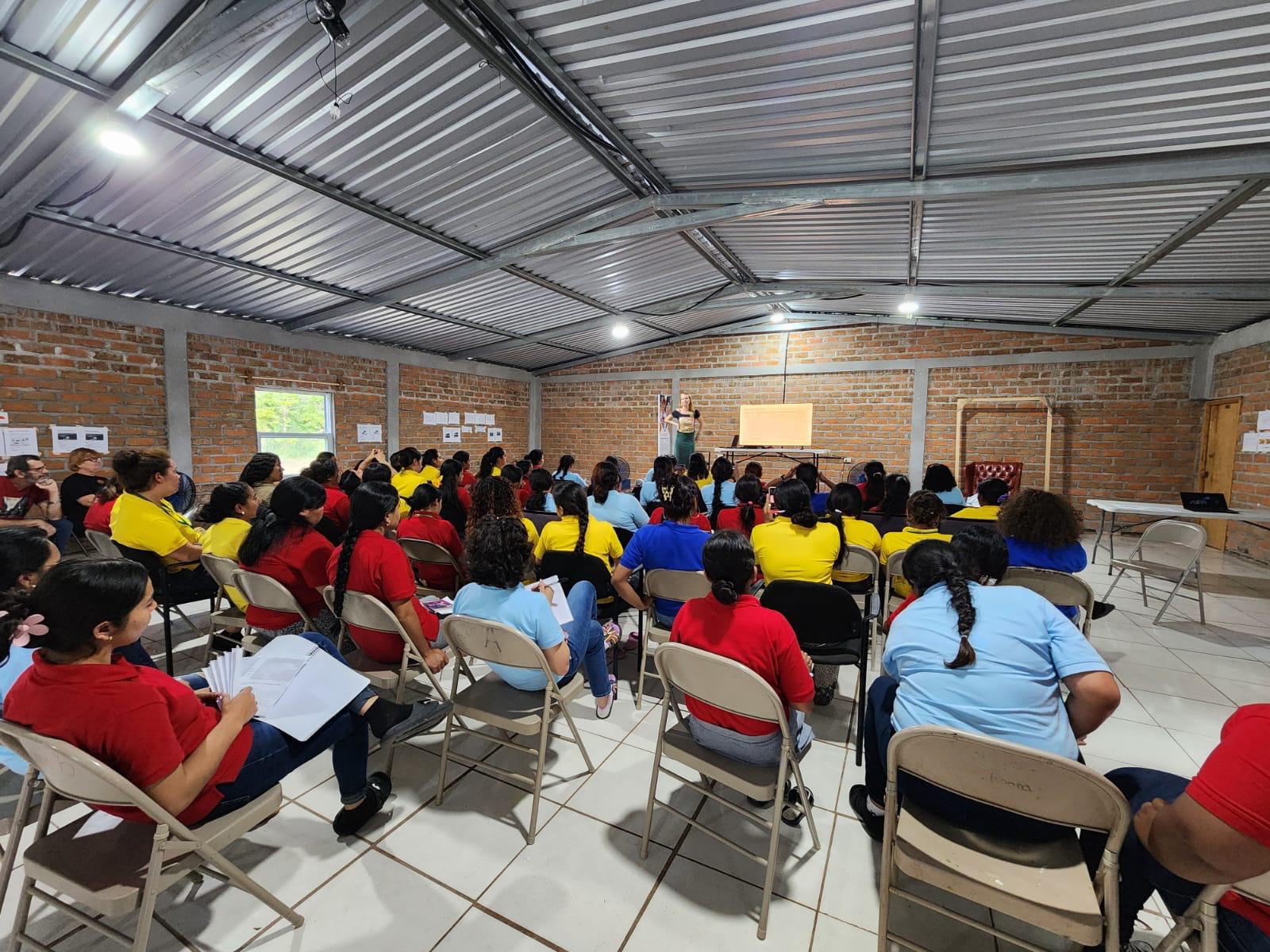Adapting to Climate Challenges: LMI Students Tackle Agricultural Risks
Honduras is already experiencing the effects of global warming: Heat waves, changes in rainy seasons, longer periods of drought, and unusually heavy rainfall and resulting floods and landslides. Hurricanes will become more frequent in the future, affecting lives, livelihoods, and local businesses in Central America.
In Honduras, global warming is most evident in the agricultural sector. In a country where farming is the main source of income and livelihood for many families, it is important to understand the risks and challenges associated with climate change and how to protect against negative impacts.
Many of these issues have been experienced first hand by LMI students. As an environmental scientist who also focuses on climate questions, it was clear to me that volunteering at the Leadership Center would be a valuable experience, not only to provide English tutoring, but also to raise awareness for this pressing global challenge. The leadership team at The Leadership Center and I identified two ways to share knowledge about climate change with LMI’s future female leaders: conducting a climate change seminar and integrating climate change adaptation into the agriculture course curriculum.
The underlying rationale is that this will provide practical, hands-on knowledge about climate change that students can share with their families and communities. This, in turn, empowers them to take the necessary actions to reduce the negative impacts of global warming that directly affect them.
Seminar: Shaping our Climate Future
LMI students participate in weekly seminars to educate them on special topics. I designed the Climate Futures Seminar to enable students to identify the greatest risks of climate change to their communities and find appropriate options to minimize or manage the risks and negative impacts. During the first week of the seminar, the participants received an introduction to the topic. They then visited a climate change exhibition where they could find information about the impacts of global warming in their departments. The students had to integrate this information into an individual risk matrix for their community. With this knowledge in hand, they participated in a climate change adaptation fair during the second week of the seminar. Acting as community leaders, they were tasked with selecting the most suitable adaptation solutions for their communities from the various options presented. On the third day of the seminar, students discussed issues related to global climate justice.
Adapting to the Effects of Global Warming in Agriculture
LMI agriculture teacher Yolani Silva and I worked together to integrate important climate change issues into the second-year agriculture curriculum. Students now have the opportunity to learn how global warming poses a risk to their family farm or local agribusinesses. They were also introduced to several low and medium-cost activities that farmers can implement to adapt their agricultural production to a changing climate. These include adjusting irrigation techniques during periods of drought, introducing more heat- and pest-resistant crops, and taking steps to protect farms from forest fires, which are likely to become more frequent.
Promoting agroforestry and other tree-rich farming systems was also highlighted as a very beneficial solution. Trees have many talents: They can protect animals and crops from excessive heat, slow the flow of water during heavy rains, help reduce soil erosion, and store water in the soil while removing greenhouse gasses from the atmosphere. This makes them great companions for both protecting our climate and reducing its most negative effects. So it is fantastic that the Leadership Center is located on a campus with many different types of trees, and that many adaptation measures are already in place on the campus farm.
Preparing future leaders to understand and address the impacts of climate change is crucial, especially in countries like Honduras, where agriculture is a lifeline for many families. By integrating climate change adaptation strategies into LMI’s education programs, students gain the knowledge and skills needed to protect their communities from the growing challenges posed by global warming. As these young women return to their homes, they will not only apply these solutions but also inspire others to take action, fostering a more climate-resilient future for Honduras.
Read this blog from the World Bank to learn more about climate issues in Honduras: https://blogs.worldbank.org/en/latinamerica/Honduras-more-resilient-country-climate-change
